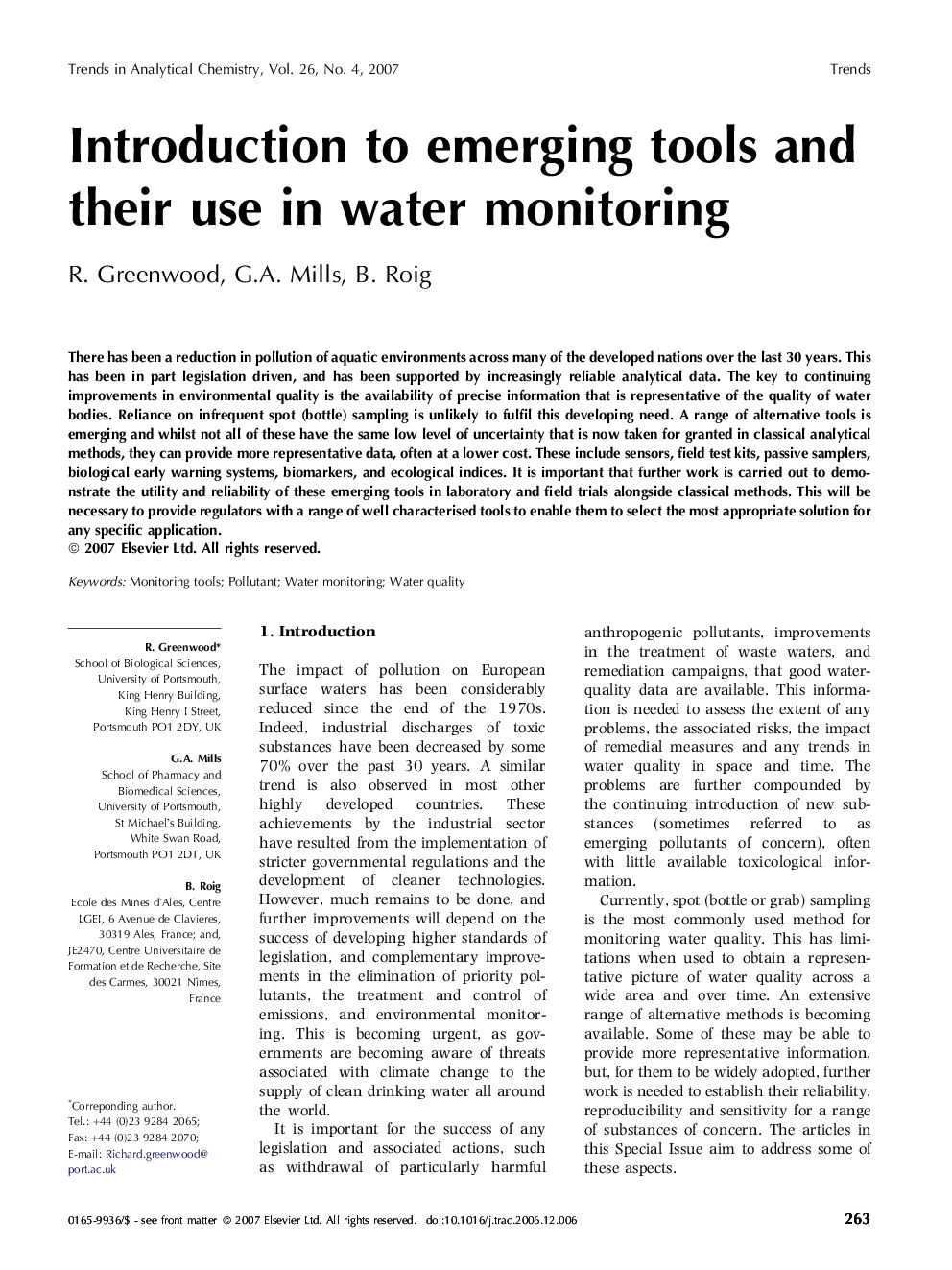| Article ID | Journal | Published Year | Pages | File Type |
|---|---|---|---|---|
| 1249473 | TrAC Trends in Analytical Chemistry | 2007 | 5 Pages |
There has been a reduction in pollution of aquatic environments across many of the developed nations over the last 30 years. This has been in part legislation driven, and has been supported by increasingly reliable analytical data. The key to continuing improvements in environmental quality is the availability of precise information that is representative of the quality of water bodies. Reliance on infrequent spot (bottle) sampling is unlikely to fulfil this developing need. A range of alternative tools is emerging and whilst not all of these have the same low level of uncertainty that is now taken for granted in classical analytical methods, they can provide more representative data, often at a lower cost. These include sensors, field test kits, passive samplers, biological early warning systems, biomarkers, and ecological indices. It is important that further work is carried out to demonstrate the utility and reliability of these emerging tools in laboratory and field trials alongside classical methods. This will be necessary to provide regulators with a range of well characterised tools to enable them to select the most appropriate solution for any specific application.
